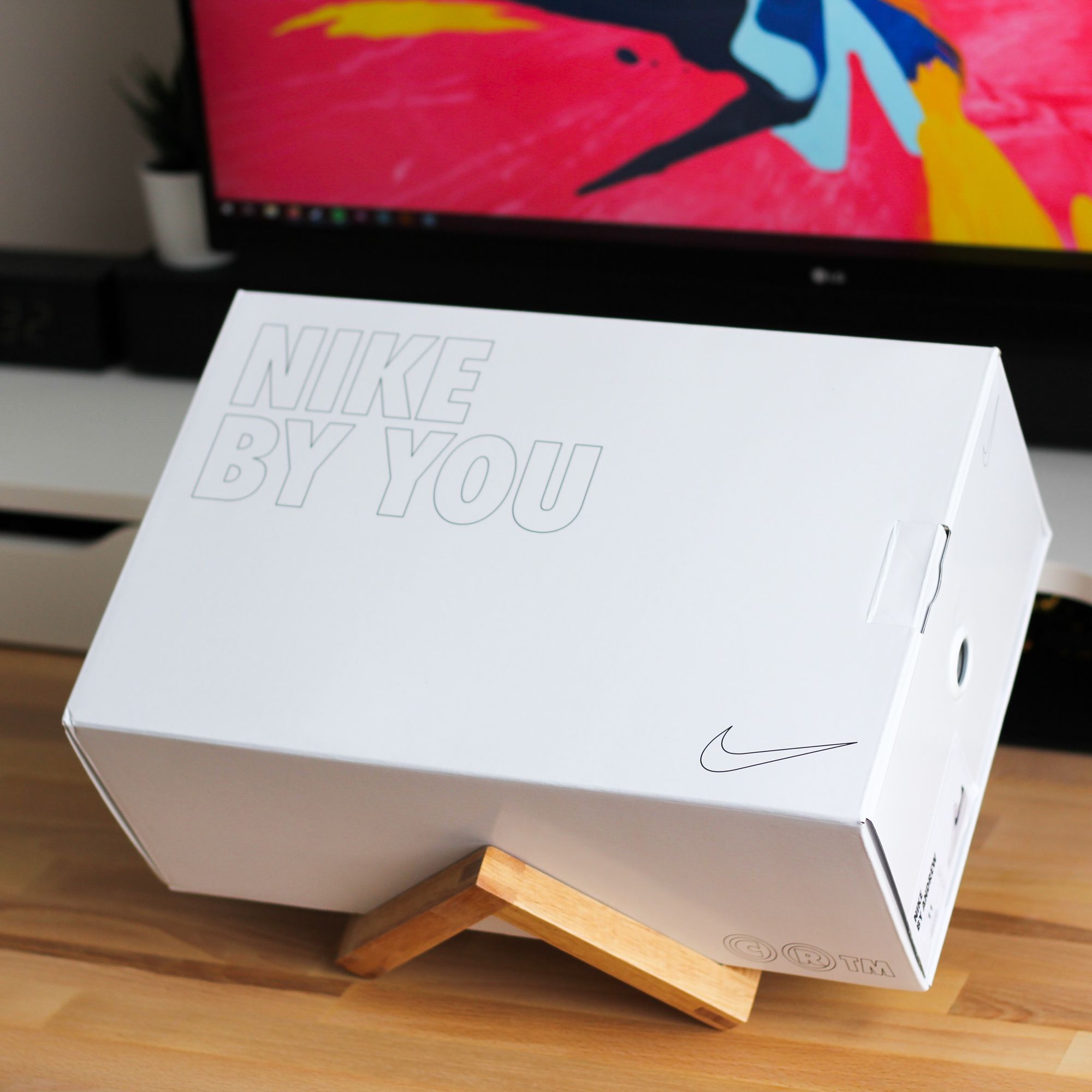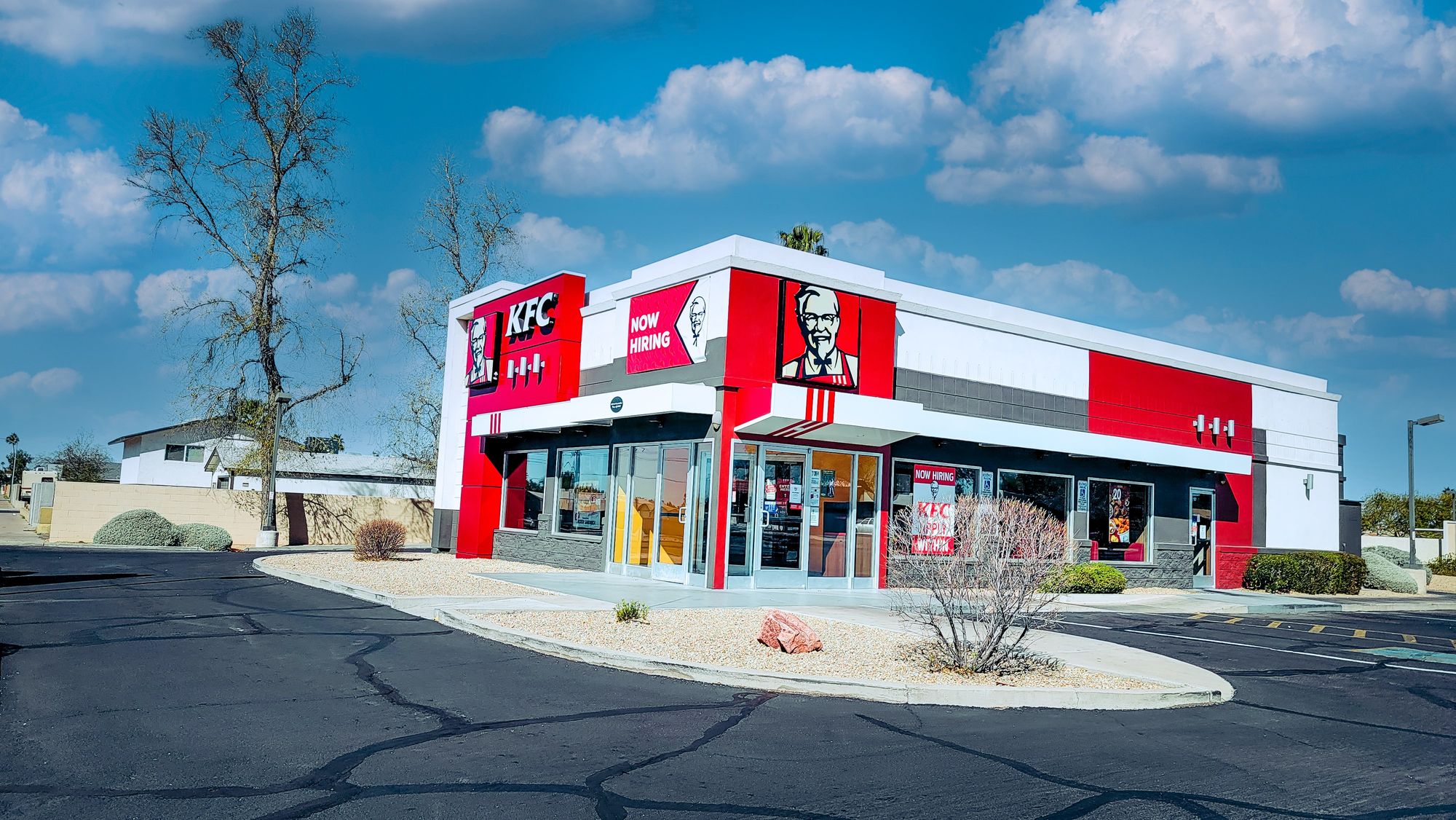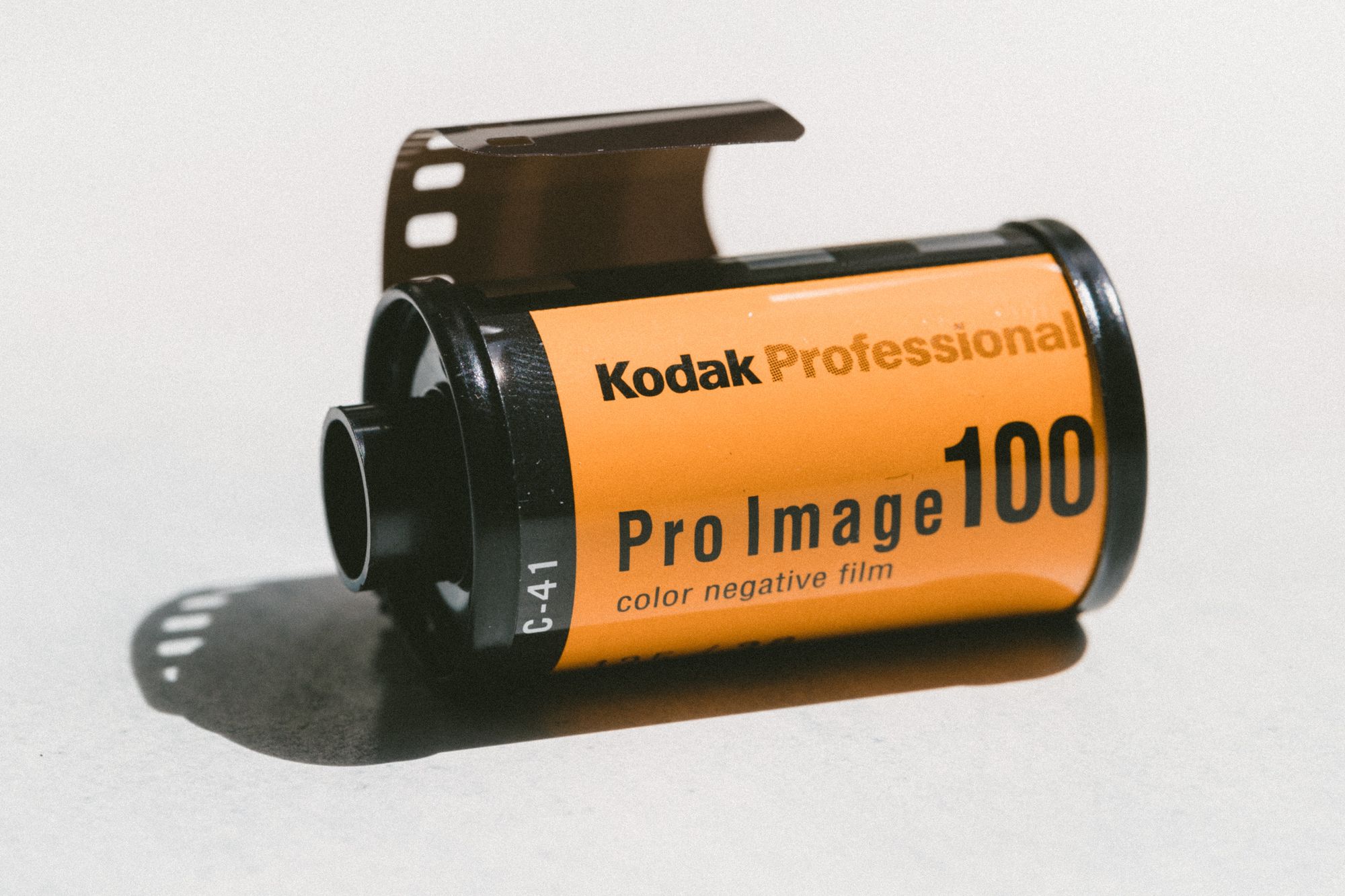“Whoever said the small things don’t matter has never seen a match start a wildfire!” ~ Beau Taplin
This quote fits perfectly when it comes to naming your business. It may appear that picking the perfect business name for your company is a simple undertaking. But it could be a journey in itself.
And, once you find the right words— this tiny matchstick could revolutionize your business in the competitive business world.

Without a shadow of a doubt— deciding on a business name necessitates a great deal of— brainstorming, strategy, and experimentation. And, like many other entrepreneurs, we're confident you're in the midst of this phase.
Well, Fear Not! Because you are in the right spot to get all the necessary information before embarking on your journey from Name to Fame!
First, let’s check what we’ll cover ahead in this comprehensive guide on how to come up with a business name:
- Understanding Business Name
- Psychology Behind Business Name
- Significance of Business Name
- 7 Structure of Business Names
- Crucial Steps to Come Up With Your Business Name
- Consider These Factors When Choosing a Great Business Name
- Consider the Naming Rules for Business System
- Availability of your Business Name
- Getting your Business Name Registered
- Regulations for Business Names
- Address the Following Questions before Naming your Business
- Frequently Asked Questions: How to Come Up With Business Name
- Interesting Famous Business Name Stories
- How Deskera Can Assist You?
Understanding Business Name
If you are operating a business, then the business name is considered the most valuable asset. So, what’s exactly a business name?
In simple words, a business name defines the registered title or name under which your organization operates. It could be either the owner's name, invented name or another type as well. One of the main objectives of a business name is for identification purposes.
Moreover, a trading name is a business name that is used to trade commercial goods and services.
An effective business name represents a strong value and identity. It represents the company’s focus and image. Therefore, several companies tend to change their business names over time to meet the pace and requirements of the audience and market.
For example; Phil Knight decided to market his own line of shoes with the originally named ‘Blue Ribbon.’ They eventually altered the name to 'Nike,' which is derived from the Greek winged goddess of victory. As a result, the world-famous Nike was established. And, it symbolizes success or victory.

Although, your business name is distinct from your personal name. However, you may find some business names that represent a person’s name such as Air Jordan (Shoes) which got its name from the Basketball player— Michael Jordan.
As you might expect, it's critical that you pick a name that is both commercial and appropriately symbolizes your company. It must be unique to your business and capable of expanding as your business grows.
There are several factors that go on —how to come up with a business name, as we will discuss later in this article. It's something that your customers will use to identify your company, and it comes with a slew of legal implications.
Psychology Behind Business Name
NameLayer is a business naming service developed by Julian Shapiro. He suggested that you consider the emotional response you want customers to have when they hear your brand, even if they don't know anything else about your company.
This characteristic is known as gravitas, or the level of seriousness you seek to elicit from clients, investors, and even staff, according to Shapiro.
Additionally, according to UCLA's Possidonia Gontijo, a brand name tends to inspire an emotional response rather than a reasoned one from consumers.

Furthermore, the left side of the brain (the analytical or logical part of the brain) is generally used to analyze language. On the other hand, the right side of the brain is also used to assess brand or corporate names (the emotional half of the brain).
According to this study, business or brand names connect to our emotions. Consider Starbucks, for example, we immediately visualize the aroma of coffee and feel fulfilled.
As a result, a strong business name should elicit the desired emotion in the audience.
Significance of Business Name
Nobody intends to construct a structure on unsteady ground. However, if you don't provide your company with the ideal name, that's exactly what you'll be doing.
The three major reasons that you should pay extra attention to the selection process are as follows. And, why naming your business hold a significant base:
1. First Impression is Important
What’s the first thing your potential audience looks at? — of course, your business name. And, it needs to be perfect enough to capture your audience’s attention at first glance.
The name of the company is crucial to its success. That is why the majority of large firms spend a significant amount of money to get the ideal name for their company.
Furthermore, your company name assists the audience to form an impression of your company. It also gives everyone the opportunity to learn more about you.
It should also be something appropriate. Because it will be featured in some advertisements or on the internet. The next step is to double-check that your business name is accessible. Because your target audience will look for your domain name on the internet.
Finally, having a good business name provides a significant opportunity to establish a positive first impression.
2. Encapsulates everything about your company
The ideal business name reveals everything there is to know about the company's creator.
Furthermore, your title could explain to them whatever they need to learn about business, products, and your firm in only a few words. Moreover, it might also persuade them that your company is the right match for them.
3. Defines one-of-a-kind position in your Industry
You have to create your value in the industry unless you already have a name in the market. Moreover, you have to face strong competition from other businesses. They're your obnoxious competition who are also aiming for your target market.
Moreover, your name is a public proclamation. And, the crucial step in establishing yourself as an expert in your profession. In a competitive marketplace, the best company names help businesses stand out.
Furthermore, they signify authority, trust, and wisdom in every field. They tell clients to expect an exceptional customer experience in a few short words.
7 Structure of Business Names
Structure of business names requires various methods, including descriptive, acronymic, associative, suggestive, and more. Each of them has its own way to construct a business name.
You can check and select from the following structures, which we have discussed thoroughly.
1. Descriptive Structure Names
The items or services being supplied are described by descriptive names. Your company's name should be able to accurately represent what you do.
Descriptive names are the greatest answer. It helps to reach a wider audience that wants to understand all about your business service or product, lifecycle, budget, or even other aspects.
However, it's tough to trademark descriptive names since they incorporate well-known words. If you want to patent your firm name, stay away from descriptive names.
For example; American Airlines, The Weather Network, Jane Surfboards, Shopper Drug Mart, Antique Lightbulbs, Cartoon Network, Hotels.com, Sports Illustrated, General Motors, Home Depot., and more.
These are some instances of company names that clearly state what they do. This eliminates any potential for misunderstanding. It can be tedious at times, but it is effective.
2. Acronymic Structure Names
These are short versions of descriptive names. Moreover, many businesses want to be recognized by simple acronyms or abbreviations rather than descriptive names since they are easier to process in the customers' minds.
Check some of the following famous examples of businesses that adopted acronymic names:
KFC: It stands for Kentucky Fried Chicken. They came up with the concept of KFC because fried chicken seemed unhealthy to them. So, they eliminate the word “Fried''. It was implemented so that health-conscious consumers wouldn't link chicken with artery-clogging lipids.

BMW: In German, Bayerische Motoren Werke translates to "Bavarian Motor Works" in English.
GEICO: The endearing gecko is the symbol of GEICO, a Maryland-based vehicle insurance firm.
You'll see the GEICO Gecko on posters, billboards, and television commercials no matter where you go in the United States.

It may sound strange to you but GEICO refers to the Government Employees Insurance Company. It is because when GEICO originally began, it was marketed primarily to government and military people in the United States.
With over 15 million customers, GEICO is now one of the leading vehicle insurers in the United States.
IBM: In order to be competitive in an ever-changing industry, IBM has always adapted. This company used to specialize on commercial levels and tabulators, but it has since moved its focus to more modern tabulating tools, necessitating a name change.

In 1924, IBM, which refers to International Business Machines, became the official name of the technology corporation. Since then, it has led the industry in the development of printers, keyboards, personal computers, and, more recently, innovation through the IBM Cloud and AI technologies.
Some other examples include GE, HSBC, BP, IKEA, HP, SAP, UPS, and more.
3. Associative Structure Names
An introspective approach to the business, such as Sirius XM, which has a metaphorical significance.
Sirius, the brightest star in the sky, was the inspiration for the satellite radio station's brand. It's a station where you can listen to the biggest and brightest stars.

Some other examples of associative names include Amazon (comes from largest river on earth), Red Bull (signifies bull like qualities such as confidence), and so on.
4. Suggestive Structure Names
Names that are suggestive are related to names that are descriptive. However, they are less precise about the offered services and items. There are three types of suggestive names:
Real: These are the terms obtained directly from the dictionary. For example; Uber (means supreme kind of person or a thing or outstanding). And, this represents a business with greater ambitions and goals.
Many more examples fall into this category such as Apple, Staples, and so on.
Composite: These are the terms obtained by blending or gluing two dictionary words into one. For example; Facebook, MasterCard, Ray-Ban, Microsoft, DreamWorks, and more.

Invented: Most times you will not be able to find the correct name for your business from a dictionary or blending. So, you have to come up with your invented version name.
A perfect example of this include— Pinterest. They simply merged the two simple words — ‘Pin’ and ‘Interest’ and created their own business name. And, it successfully worked for them.
Some other examples include— Kleenex, Prozac, Celebrex, and more.
5. Abstract Structure Names
This is where the power of ‘Phonetics’ comes into play. Rolex is a great example of this because it is easy to pronounce and also has a premium connotation.

Another example of abstract names is Kodak.
Moreover, abstract and innovative names are simpler to trademark because they are unique.
However, because they're so distinct, they'll require further marketing assistance to help customers connect the brand names to the products and services offered by the company.
6. Eponymous Structure Names
In today's world, company founders have iconic status. Their names can be found not only in history books or periodicals but also in brand names. However, there is a hint of idleness and ego in these names.
These are the names that are based on the founder or owner’s name. For example:
- Adidas (the founder Addie Dassler);
- Tesla (Elon Musk named his company after the name of Nikola Tesla, the historic electric engineer);
- Louis Vuitton (named after the brand’s founder name);
- Honda (named after the founder, Soichiro Honda);
- Toyota (named after Toyoda family name);
- Dell (named after the company’s founder Micheal Dell);
- Disney (named after Walt Disney, the founding animator);
- McDonald’s (named after the founder Richard McDonald);
- Burberry (named after Thomas Burberry, the business founder), and so on.
7. Names Derived from Another Language:
Of course, you know that some words make no sense in your language. But, they will make sense in another.
A perfect example of this include— Hulu. It is derived from the Chinese term that represents a bowl that stored precious things.

Some other famous business names that are derived from other languages include:
- Zappos (comes from the short version of Spanish term Zapatos— it means shoes);
- Samsung means 3 Stars in the Korean language);
- Audi (means listen in Latin);
- Danone (means little Daniel in the Spanish language);
- Corona (means Crown in Italian and Spanish language);
- Volkswagen (it means people’s car in the German language);
- Lego (means Play Well in the Danish language);
- Budweiser (means ‘of Budweis,’ the region of Germany that inspired the lager);
- Hyundai (it means modernity from the word ‘Hanja’ in the Korean language);
- Prego (is a popular tomato sauce and also means Please in Italian),
- Patagonia (it means mountain range in Chile and Argentina), and so on.
Crucial Steps to Come Up With Your Business Name
Before you begin the process of —how to come up with a business name— you must examine a number of factors. Moreover, these factors will have an impact on how desirable your business name is to your target audience.
Even though it is a collaborative effort, naming a company necessitates knowledge of the market and customer behavior.
There are a few uncodified rules that must be followed in order to be successful. And, make sure you ponder about each one of the following points:
A Rough Homework
To come up with a splendid business name, you must have to jog your mind. It simply means you have to learn, understand, and discover every bit of your targets in each aspect.
Begin with noting down words or phrases associated with your audience, company, competitors, and so on. Make sure you don’t dwell on the analytical process in this stage.
Give around 30 minutes and research as much as you can. And, you will have a huge list of relevant words or phrases associated with your business and audience.
Further, make certain you are well-versed in your company's mission, vision, values, and objectives. Collecting data might assist you in selecting a terrific style and voice for your company.
Research Process
Once you have completed the first step, then you have to move to the second step which is— Research. Gather as much information you can from various sources such as the thesaurus, online sources, books, and more.
All you have to do now is to add your research words to your long list of words again. This ensures that you don't miss any opportunities in your search for the perfect business name.
In addition, look for synonyms or related keywords for each of your words as well. If you come across any that aren't on your list, make a note of them.
Remember that you don't have to be particular at this point, but if there are any that are clearly irrelevant, you can eliminate them. When it comes to naming your company, you now have a broad selection of phrases to choose from.
Following we have listed some important brainstorming methods that you can implement in this process. Let’s learn:
Free Storming:
When you're free storming, you're probably just thinking and writing about whatever comes to mind when you get an idea. All you have to do now is find a calm area and really immerse yourself in free storming.
Simply jot down everything that comes to mind – important or meaningless, good or awful – in a notebook or on a computer.
Moreover, this is a strong brainstorming process that allows you to write down all of your "genuine and raw" thoughts before diving into an ocean of ideas to find numerous hidden concepts.
Visualization:
Relax and imagine yourself as a consumer of the type of company you want to start. What right or accurate words do you think you'd use to describe the services, product, and business? Think about the phrases you'd use to characterize that atmosphere.
Mind Mapping:
A mind map is a diagram that depicts thoughts and ideas. It's a way to represent ideas with knowledge as well as assessment, comprehension, integration, recall, and the development of new ideas.
Its power, like the strength of any great idea, lies in its simplicity.
Unlike traditional note-taking or a chronological narrative, the information in a mind map is structured in a way that closely resembles how your brain operates. Because it is both logical and artistic, it utilizes your brain in a richer way, supporting all of its cognition. And, most importantly, it's fun!
Associative Brainstorming:
This process can be accomplished by one person or company of people sitting quietly with a notepad in a quiet area. All you need now is an idea, which is usually a single sentence that captures the concept.
Furthermore, make a list of any other terms that spring to mind when thinking about that concept or word.
It usually works if you let your mind wander and try to come up with as many words as you can. You tend to activate your imagination with other comparable words when using this strategy, which then triggers additional words.
This permits your brain to make connections and come up with fresh thoughts. You have total control over the length of your activity, which can be anything between 10 and 60 minutes.
Personal Touch:
Establish links between personal events and significant memories, as well as strategies to make others feel the same through words. You can also use your personal name or last name, even a mentor's name, or the name of someone else who is valuable to you.
Shoot the Right Aim
“If you want to impress everyone then you will impress—No one!”
In case you are planning to impress everyone, then stop right there. You have to understand who’s your ideal customer. Who exactly will get attracted to your product or service. And, this leads us to this crucial step to appeal to the right audience.
Before naming your business— you must have to know who will get attracted to it. Suppose, you have a fitness brand, then you have to come up with something related to fitness, health, and such related terms. And, it will attract and target fitness enthusiasts.
The preferences, age, lifestyle, interests, and other variables of this target audience influence the course you take. Moreover, this data can help you create the persona of your ideal customers and drive your naming approach.
Story that Connects
A name without a story is simply just a Word. If it doesn’t connect with anyone, you will fail to attract or engage your audience.
Let’s take a simple example; when you hear any unique or interesting name of any individual, you end up with curiosity to know what exactly it means. And, this builds interest and even engages people with you.
Well, the same goes for Business— and of course, it's a huge deal. Because it attracts, connects, and engages people with your goods or services.
As a result, your company name should be something to which people can relate or that can elicit emotions in them. It will pique their interest in learning more about your company.
Filter and Choose
Once you filter the right words, then you have to focus on the right style and tone.
Moreover, you have to choose if you want a descriptive, creative, or another structure name for your company. Business names that are descriptive express a company's service or product swiftly. However, they don't require much elaboration because the name speaks for itself.
A thorough name has the problem of being too specific, restricting any extension. If you're getting ready to launch a business, we recommend giving it a descriptive name that highlights one of its benefits. It will help the audience to understand what your business is all about.
Consider Different Viewpoints
Different viewpoints help to pick up the points which you missed in your research. Therefore, make sure to discuss your business names list with your close friends, family, or relatives. If you have a small team— then it will be an awesome way to finalize the business.
In all these processes, make sure you experiment with all your available tools. Don’t forget that you should also love the concept of your name.
It's evident that you must love your new business name and believe in presenting it to the audience. That's why we recommend coming up with a number of ideas and thinking about them before settling on one - don't expect instant success!
Finally, businesses restructure all of the time, but it costs time and money. Moreover, to ensure that your company starts off to a good start — make every effort to get the title right the first time.
Consider These Factors When Choosing a Great Business Name
You've certainly come up with a bunch of great company names. Perhaps you even might have a preference.
However, choosing a name for your business includes much more than just coming up with a creative phrase. The name you choose will reflect your objective policies and goals. It will help you promote yourself. It also won't get you through legal problems.
Consider the following elements Before you set up a business name:
Consider the Naming Rules for Business System
We've only discussed the artistic vision of naming your small business so far. There are, however, a few more ethical concerns. These have to do with your business plan and the type of business you have overall.
1. Formal Business Structures
Which name standards you'll have to comply with depends on how your company is structured. Businesses that have two official structures are subject to more stringent rules and regulations:
- Limited Liability Companies (LLC)
- C-Corporations
Limited Liability Corporations
Forming an LLC is a popular pick for small business owners. Moreover, if a firm is sued, the structure helps to protect personal assets.
There are certain business naming regulations if you want to form your company as an LLC. They vary from state to state, but there are a few that apply almost universally.
To begin, the phrase 'limited liability corporation' or one of the abbreviations 'LLC' or 'L.L.C' must be included in the company name. It's also against the law to name your company in such a way that it could be confused with a government organization.
Finally, you may require specific permission and preparations to use particular words. 'University,' 'Bank,' and 'Attorney' are examples of them.
C-Corporations
An LLC is a less complex entity than a C-corporation. It goes above and beyond to safeguard a business owner's personal assets, and it frequently includes shareholders, officials, and other stakeholders. There are state-level requirements for naming this sort of business once again.
One of four phrases must be included in a business name, according to the most common criterion. 'Corporation,' 'business,' incorporated,' or 'limited' are examples of these terms. Abbreviations of the nouns, such as corp., are also acceptable.
Your name must not appear to be that of a government agency once more. Finally, any pseudonym must be distinct from those used by other organizations in your state.
2. Informal Business Structures:
Many entrepreneurs prefer a less formal business structure. Moreover, if you're a one- or two-person enterprise, you'll probably set up as a sole proprietorship or a partnership.
Additionally, these companies are not subject to as many rules. That isn't to imply they don't exist.
Sole Proprietorship
When naming a sole proprietorship, there is one fundamental requirement to follow. That is, your company must operate under the name of its owner, which is you. If you file for a DBA, you can trade under a different brand name.
The acronym DBA stands for "doing business as." It's how you can operate under a legitimate, official brand name other than your surname.
General Partnership
General partnerships are limited liability corporations that are identical to sole proprietorships. In contrast, a partnership is made up of two or more individuals.
Furthermore, a general partnership is a non-formal business entity that does not provide personal asset protection.
The surnames of the partners must be included in general partnerships. Partnership owners must register a DBA (doing business as) form in almost the same method that sole proprietorships must submit a DBA (doing business as) document to use a different title.
Availability of your Business Name
When you've whittled down your list of amazing business names to just a few standouts. You've tinkered with them to ensure that they follow the rules of your company.
Now is the moment to check to see if the names you've picked are still available.
1. Determine if the Domain is Available
Every company should have a digital footprint. It is an important aspect that every business owner has to consider. Your domain name should preferably match or be as close as possible to your business name.
And that's why you should monitor the status of your domain. You can use a variety of tools to help you with this task.
The above-mentioned business name generator is a good place to start. You can go to the following stage if you've found a business name that has an available dot com domain.
2. Conduct a trademark search on the Federal Level
There's one more thing to check after you've confirmed domain availability. You must check to see whether your business name concept has been trademarked by someone else. Fortunately, this is a simple task.
To get started, go to the US Trademark Electronic Search System (TESS). You then write in your business name suggestion. The specialized search engine conducts a trademark search and notifies you if your desired trademark is available.
Getting your Business Name Registered
Now that you've completed all of the processes, it's time to register your chosen business name. This procedure is divided into two parts:
- Getting your company registered
- Obtaining domain names
It should be straightforward to register. As long as you obey the requirements for your business model and keep an eye on trademarks, that is. The majority of decisions are being made at the state level.
Documents can be lodged with the proper state government agencies. However, if you want to trademark your company name, you must submit an application to the US Patent and Trademark Office.
Once you've decided on a business name, acquire as many appropriate domains as you can. You have a selection of domain registrars to pick from, including GoDaddy and others.
It's possible that you'll simply use the.com domain with your company name. Owning the other comparable alternatives, on the other hand, prevents things like this from happening.
Regulations for Business Names
If you follow the methods above, you'll come up with the ideal business name. But first, let's go over some key points to bear in mind as you go through the procedure.
Clear Grasp on your Business
Naming, like many other business activities, necessitates a thorough grasp of your firm. Your label must be significant and represent the benefit that your company offers.
Keep this in mind during the process of generating and pinning down business name suggestions.
Make Use of Descriptive Language
Descriptive words are a wonderful method to convey the above-mentioned message. Consider putting such a phrase in your company's name. Including terms like 'immediate' or 'quick,' for example, could be a choice for companies that value speed.
Be Precise and Accurate
When it comes to naming your business, you should be imaginative. After all, individuality is crucial.
However, don't make it too difficult for prospective clients to understand what you're all about. Just by glancing at your company name, they should be able to ascertain what you are all about.
Keep it Easy and Simple
It is important to keep your business name simple and easy to understand for your audience.
Also, it must be easy for consumers to enter online to visit your website or send emails to you. Further, keeping hard-to-spell or writing business names could affect your business as well.
Moreover, simplicity reduces the chances of misspellings on business cards, business items, and other printed materials in the future.
Feedback Work Wonders
In many aspects of business, feedback is essential. External feedback is still necessary, as much as you have to take control of your company's name.
When limiting down your company name options, get as many different perspectives as possible. Also, don't limit yourself to friends and relatives.
Moreover, make an effort to conduct thorough market research on specific audiences.
Don't Limit Yourself too Much
Your preferred label must specifically indicate what you have to offer potential buyers. You don't want to trade yourself short, though.
Choose a title that isn't overly specific or restricted. Customers looking for something else will not consider you if your name implies you only provide one product.
Be Mindful to Geographical Names
Cloud migrations and other forms of digital transformation aren't the only things that require scalability. It's likely that it impacted your name decision as well.
Moreover, the quest for a name is underway and will be for some time. Pick a good name that will flourish with your company. However, when you expand and open more locations, it becomes exceedingly challenging.
Address the Following Questions Before Naming your Business
Once you've decided on a name for your company, it's time to consider some crucial naming guidelines:
Frequently Asked Questions: How to Come Up With Business Name
Following we have discussed some crucial frequently asked questions associated with naming your business. Let’s learn:
Que 1: What Should My Small Business Be Called?
Picking a name for a small business is usually a do-it-yourself activity. The majority of small business startup subsidies will not allow you to hire someone to help you name your company.
Que 2: Is trademark registration accessible to the public?
It is. The public has access to your trademark application, comprising your personal information. Your trademark information is required by law to be easily discoverable by the general public.
Que 3: How can I generate memorable business names?
The very first step in naming your company is deciding on the line of business framework you'll employ. After that, you'll come up with at least 4 to 5 potential names.
Furthermore, the more ideas you generate, the better. Once you have a list of names, compare them to industry standards, name availability, and state regulations.
Que 4: Is it possible for me to sell or purchase my trademark?
A trademark can be bought or sold. A trademark is an intellectual property, which means it may be sold just like any other piece of property. Before purchasing or selling intellectual property, particularly trademarks, it is critical to contact an attorney.
Que 5: Where should I go to purchase a domain name?
GoDaddy is our #1 pick for web hosting and domain registrars. We enjoy their domain search tool since it allows you to search for a certain name or generate suggestions based on the keywords and obtainable names.
Moreover, you will find many different companies to choose from that will provide an excellent service. Also, to look for a domain name, go to GoDaddy.
Que 6: Is it allowed to use the word "company" in my company title name?
If your company is a corporation, you can only use the term "company" in its name.
Que 7: Is it essential to include LLC after my business name?
Most states will need you to include LLC after your new company's name if you utilize a limited liability corporation form. You can simply use the complete phrase "limited liability company."
Que 8: Is it a good idea to name your company after yourself?
There are advantages to naming your company after oneself. Moreover, using your name when coming up with fresh ideas or approaches can help you build a powerful brand.
There are also arguments against naming your company after oneself. If you don't want to be the image and name of your business, it won't function.
Moreover, if your customer or client base requires a corporate name, you must supply one for them to use. You should not use your name if you want your firm to run on its own one day, without you operating there every day.
Que 9: Resources for Brainstorming Business Names?
There are a number of sites that can help you come up with names, such as:
- VisualThesaurus.com is a visual dictionary available on this page. (gives you a visual representation of a keyword)
- Naminum.com is a website dedicated to the name Naminum (aids in the formation of names based on a theme)
- NameMesh.com is a website where you can look up names (delivers a name generator for new businesses.)
Interesting Famous Business Name Stories
Here we have discussed some interesting stories of business names that might inspire you to begin your business naming process. Let’s check:
1. Amazon
Cadabra was originally called after the magician's term "abracadabra," but founder Jeff Bezos realized he wanted a fresh name after a lawyer misunderstood him on the phone and mistook him for saying "cadaver."

Bezos chose the name of a South American river since the name had to start with an "A" in order to receive top billing in the phone directory.
2. Kodak
The Kodak’s company founder— George Eastman's favorite letter was the k, which he described as "it seems a strong, incisive sort of letter"

Using an Anagrams set, he and his mother, Maria, came up with the name Kodak. Eastman said he based the name on three main principles: it had to be short, easy to pronounce, and not sound like any other name or be related to anything else.
The name was advertised in a 1920 commercial "was simply invented—made up from letters of the alphabet to meet our trademark requirements. It was short and euphonious and likely to stick in the public mind."
3. Coca-Cola
Coca-Cola was invented by Dr. John S. Pemberton in 1886, and the "coca" and "kola" in its name are apparently derived from the use of coca leaves and kola nuts in their composition at the time.

However, Pemberton's bookkeeper, Frank M. Robinson, came up with the precise formulation—along with the complex script typeface—after suggesting that "the two C's would look well in advertising."
4. Apple
After returning from a months-long spell working at an apple orchard, the intriguing co-founder recommended the name Apple Computer because it sounded "fun, spirited, and not intimidating," according to Walter Isaacson's biography, Steve Jobs.

Co-founder Steve Wozniak eventually agreed with Jobs that the title was "a good fit" after attempting to come up with any other, more technical-sounding options.
5. Google
Initially named BackRub, the search engine behemoth was given its current moniker due to a fortunate mistake.
Sean Anderson, a fellow graduate student at Stanford, offered "googolplex" when discussing titles that would reflect the "immense amount of data" their website would be indexing.

In response, Larry Page, the company's founder, suggested the abbreviation "googol," which is a mathematical expression for 10 to the one-hundredth power (10100 ).
Anderson, on the other hand, typed "google.com" while looking for the eligibility of the domain name.
After learning that the domain name was obtainable, Page and Sergey registered the business name in September 1997.
How Deskera Can Assist You?
Take your business to the next level with Deskera All-in-One. Once you have named your business, then you have to look for other crucial aspects as well. And, for this, you have the perfect solution in one go, which is— Deskera.
It is a platform that offers Invoicing, Accounting, Inventory, CRM, HR & Payroll all under one roof. With Deskera books, you can keep track of your business cash flow and revenue using its financial reports.

Final Takeaways
Yay! You made it to the end section of this detailed guide. With loads of information, you might feel overwhelmed!
No worries, to help you with that— we have summarised some important points for your future reference. Let’s take a look:
- A business name defines the registered title or name under which your organization operates. It could be either the owner's name, invented name or another type as well.
- Your title could explain to them whatever they need to learn about business, products, and your firm in only a few words.
- The structure of business names requires various methods, including descriptive, acronymic, associative, suggestive, and more.
- Many businesses want to be recognized by simple acronyms or abbreviations rather than descriptive names since they are easier to process in the customers' minds.
- Begin with noting down words or phrases associated with your audience, company, competitors, and so on. Make sure you don’t dwell on the analytical process in this stage.
- Gather as much information you can from various sources such as the thesaurus, online sources, books, and more.
- The preferences, age, lifestyle, interests, and other variables of this target audience influence the course you take.
- Businesses restructure all of the time, but it costs time and money. Moreover, to ensure that your company starts off to a good start — make every effort to get the title right the first time.
- Businesses that have two official structures are subject to more stringent rules and regulations: Limited Liability Companies (LLC) and C-Corporations
- Your domain name should preferably match or be as close as possible to your business name.
- You must check to see whether your business name concept has been trademarked by someone else.
- If you want to trademark your company name, you must submit an application to the US Patent and Trademark Office.
- The public has access to your trademark application, comprising your personal information.
- Before purchasing or selling intellectual property, particularly trademarks, it is critical to contact an attorney.
Related Articles












